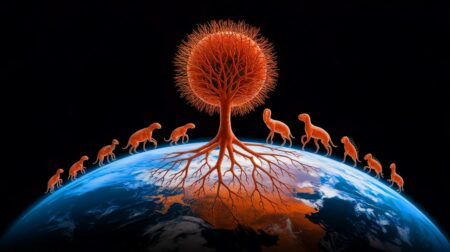Photo: Pixabay/Erik_Karits
Habitat loss, pesticide use, air pollution, climate change. Insects worldwide are facing a host of challenges driving their numbers down.
Climate change alone is posing severe risks to populations of insects that have already been in marked decline for decades, according to a team of scientists from 19 countries who examined research on the health of insects across the planet.
While some insects will be forced by warming to migrate to cooler regions, others will face adverse impacts to their fertility, lifecycle and interactions with other species, the scientists explain in a study. This will lead to dramatic disruptions in ecosystems, which could ultimately affect us all.
“We need to realize, as humans, that we are one species out of millions of species, and there’s no reason for us to assume that we’re never going to go extinct. These changes to insects can affect our species in pretty drastic ways,” stresses Anahí Espíndola, an assistant professor of entomology at the University of Maryland who was one of the paper’s co-authors.
Despite their relatively small size, insects play an outsize influence in ecosystems by acting as pollinators, recycling nutrients and serving as food for animals further up the food chain. Yet many insects are especially vulnerable to temperature fluctuations.
“Unlike mammals, many insects are ectotherms, which means they are unable to regulate their own body temperature. Because they are so dependent on external conditions, they may respond to climate change more acutely than other animals,” the scientists note in a statement on their research.
As temperatures worldwide continue to rise, more and more insects will be affected. If the planet heats up by 3.2°C, the ranges of nearly half of all the insect species will diminish by at least 50%, the scientists say. If warming is limited to 1.5°C as per the Paris Agreement, only 6% of insect ranges will be affected.
The mass movement of insects in the face of a changing climate wil not necessarily be a boon either. Some insects might become far more pervasive in some areas, decimating crops or bearing diseases.
“Many pests are actually pretty generalist, so that means they are able to feed on many different types of plants,” Espíndola says. “And those are the insects that, based on the data, seem to be the least negatively affected by climate change.”
We can still take action, however, to protect insect habitats worldwide. We can do so by phasing out fossil fuels, curbing air pollutants, restoring and protecting ecosystems, promoting mostly plant-based diets and stabilizing the global human population.
At the same time, we can all help by managing public and private gardens as well as other green spaces in a more ecologically-friendly way. One way of doing that is to incorporate native plants into the mix and avoid pesticides to create havens for embattled insects.
“Insects are tough little critters, and we should be relieved that there is still room to correct our mistakes,” observes Jeffrey Harvey, an expert at the Netherlands Institute of Ecology who was the paper’s lead author.
“We really need to enact policies to stabilize the global climate. In the meantime, at both government and individual levels we can all pitch in and make urban and rural landscapes more insect-friendly.”
Did you like it? 4.3/5 (23)








